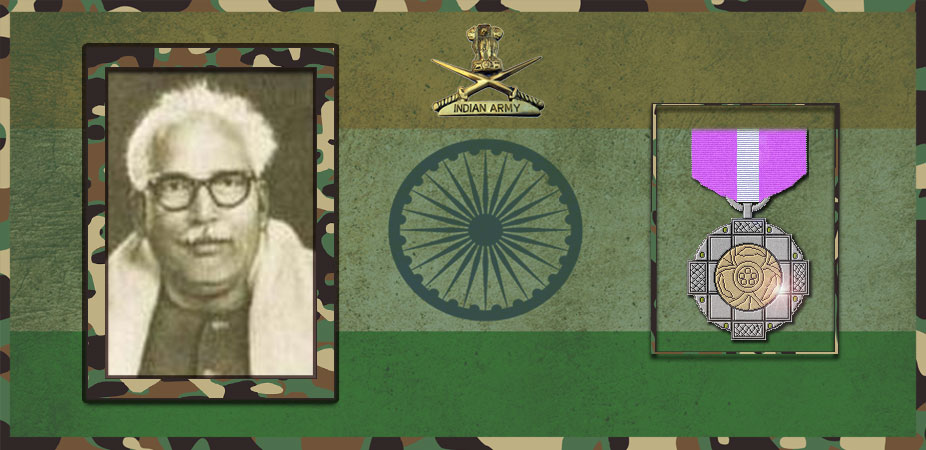Let's salute to our Indian Army together, We are proud to be Indian.
Let's salute to our Indian Army together, We are proud to be Indian.

Hazari Prasad Dwivedi (August 19, 1907 – May 19, 1979) was a Hindi novelist, literary historian, essayist, critic and scholar. He penned numerous novels, collections of essays, historical research on medieval religious movements of India especially Kabir and Natha Sampradaya, and historical outlines of Hindi literature.
Besides Hindi, he was master of many languages including Sanskrit, Bengali, Punjabi, Gujarati as well as Pali, Prakrit, and Apabhramsa.
Steeped in traditional knowledge of Sanskrit, Pali and Prakrit, and modern Indian languages, Dwivedi was destined to be the great bridge maker between the past and the present. As a student of Sanskrit, steeped in the Sastras, he gave a new evaluation to Sahitya-sastra and he can rightly be considered as a great commentator on the textual tradition of the Indian literature.
He was awarded the Padma Bhushan in 1957 for his contribution to Hindi literature, and the 1973 Sahitya Akademi Award for his collection of essays, ‘Alok Parva’.
He was born on August 19, 1906 at Dubey-ka-Chhapra village in Ballia district of Uttar Pradesh in a traditional family famous for astrologers. His father Pandit Anamol Dwivedi was a learned Sanskrit scholar.
Dwivedi had his early education until middle examination at his village school. After completing his intermediate, he also studied Jyotisha (astrology) and Sanskrit at a traditional school to qualify for ‘AchArya’ degree in astrology and ‘Shastri’ dregree in Sanskrit.
On November 18, 1940 he began his career as a Hindi lecturer at Santiniketan, and in 1940 he was promoted to the office of the Director of Hindi Bhavan in Vishvabharati, which he held till 1950.
During his stay at Shantiniketan, he came in close contact with Rabindranath Tagore and other prominent figures of Bengali literature. He came to imbibe the subtleties of Bengali, the aesthetic sensibilities of Nandalal Bose, the search for roots of Kshitimohan Sen and the gentle but piercing humour of Gurudayal Mallik. These influences are evident in his later writings.
He left Shantiniketan in 1950 and became Professor and Head of the Hindi Department at the Banaras Hindu University, Varanasi in which position he served till 1960. While in this position, he was also appointed as a Member in the first Official Language Commission set up in 1955 by Indian Government.
In 1960 he joined Panjab University, Chandigarh, as Professor and Head of its Hindi Department, a post that he held till his retirement.
Hazari Prasad Dwivedi’s contributions to Indian creative and critical writings are phenomenal and his interests diverse.
He wrote the following important works in Literary History and Criticism:
The above writings of his gave a new direction to the history of criticism in the Hindi literature.
He also published his historical analysis of medieval religious life of India in following books:
His work on medieval saint Kabir is considered a masterpiece, and is a thoroughly researched analysis of Kabir’s thought, works, and teachings.
He was also am eminent novelist. His novels revolved around Historical themes and personages. His following Historical Novels are considered classics:
He was also a great essayist. Some of his memorable essays are:
He also translated many works from English and other languages to Hindi. These include: